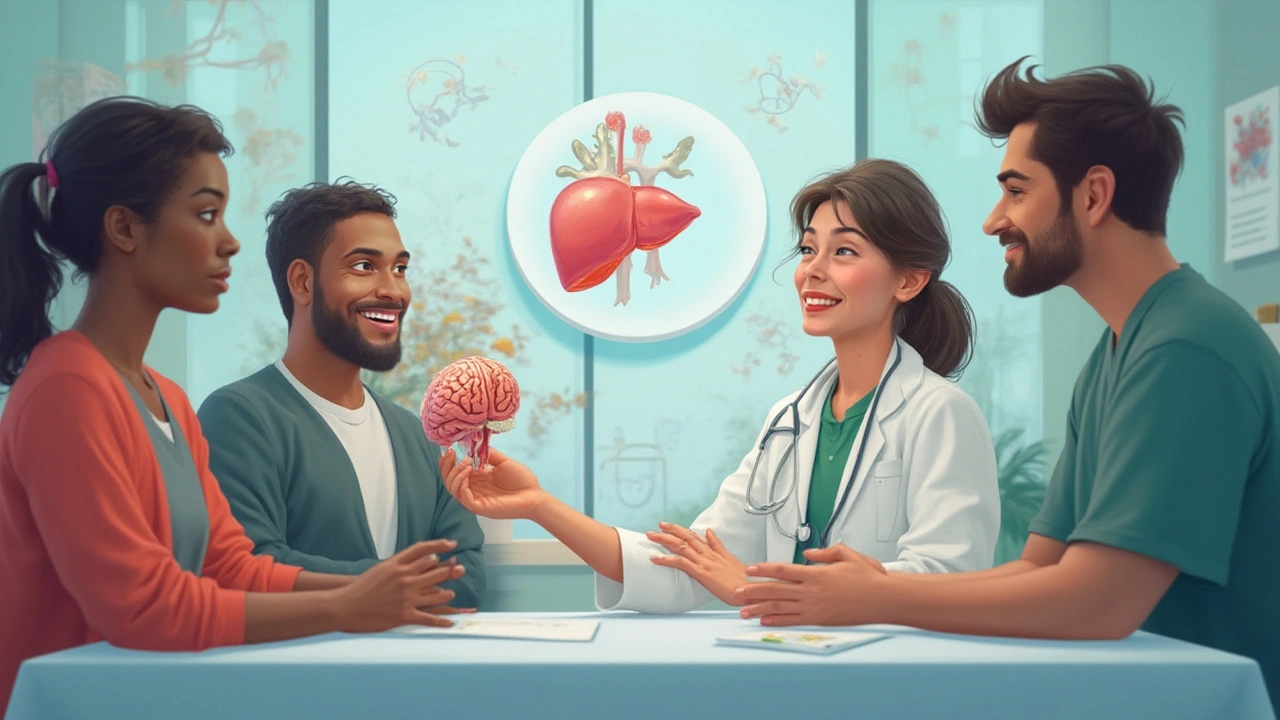
Discover how ursodiol may help protect the brain from encephalopathy in people with liver disease. Learn the science, facts, and practical tips.
Your liver does a ton of work—filters blood, stores energy, and helps digest food. When it’s unhealthy, you might feel tired, get yellow skin, or notice swelling in your belly. Those are red flags that something isn’t right. Understanding the basics helps you catch problems early and take action before things get serious.
Most liver issues start with a few familiar culprits. Viral infections like hepatitis B and C damage liver cells over time. Excessive alcohol use also slows the organ down, leading to cirrhosis if you keep drinking heavily. Then there’s non‑alcoholic fatty liver disease (NAFLD), which shows up when you eat a lot of sugary or fatty foods and gain weight. Certain medications, especially some pain relievers and cholesterol drugs, can be hard on the liver too.
Watch for symptoms that don’t go away: persistent fatigue, itchy skin, dark urine, or pale stools. If you notice any of these, see a doctor for blood tests and an ultrasound. Early detection lets you make changes fast. Cut back on alcohol, lose extra pounds, and choose a diet rich in vegetables, whole grains, and lean protein. Staying active—just 30 minutes a day—helps reduce fat buildup in the liver.
Medical treatment depends on the cause. Hepatitis may need antiviral pills, while fatty liver often improves with weight loss and exercise. Some people benefit from vitamin E or prescription meds that target liver inflammation. Your doctor will guide you on the right plan, and regular check‑ups keep you on track.
Supplements can be helpful, but not all are proven. Milk thistle and coffee have some evidence for protecting liver cells, but talk to your doctor before adding anything. Remember, the best “supplement” is a healthy lifestyle—balanced meals, limited booze, and staying active.
Bottom line: liver disease is preventable for many people. By knowing the risks, spotting symptoms early, and making simple day‑to‑day changes, you give your liver a chance to heal and keep doing its vital jobs. Keep an eye on how you feel, stay informed, and don’t wait to get professional help if something feels off.

Discover how ursodiol may help protect the brain from encephalopathy in people with liver disease. Learn the science, facts, and practical tips.